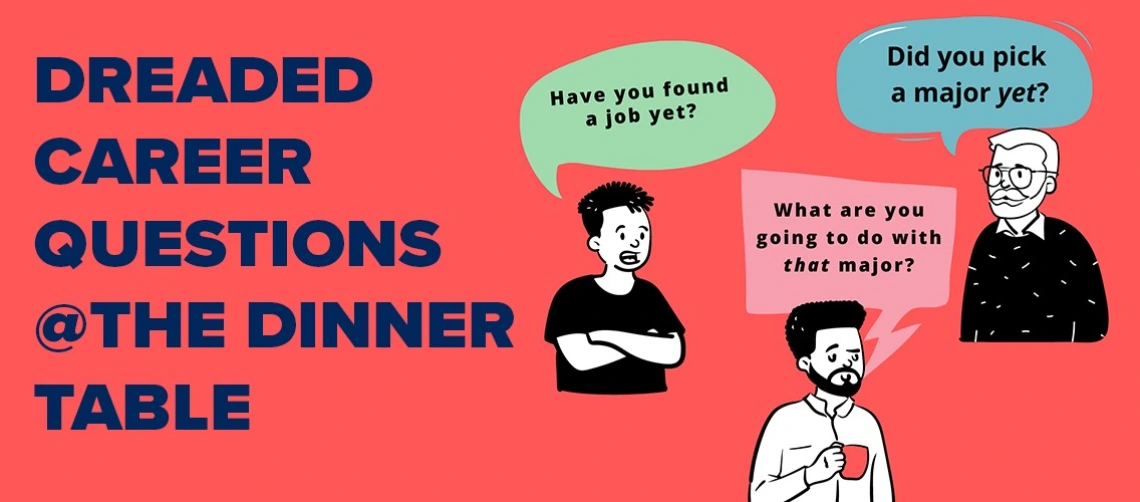Keep the Conversation Going: Career Questions Your Student Will Want to Answer

When November rolls around, UArizona students are counting down the days to the upcoming holiday breaks, eager for a bit of relief from the routine of coursework, papers, and exams. One thing they may not look forward to is questions from well-intentioned family members and friends about post-graduation plans and career prospects.
It’s perfectly fine to want to know what thought or planning your student has given to their future plans. If you’ve put a single nickel towards their tuition or cost-of-living, you are quite literally invested the outcomes of their education, which hopefully comes in the form of future meaningful career opportunities.
Asking common questions like “have you found a job yet?” or “what are you going to do with that major again?” tend to encourage students to come up with a response that they think will be pleasing or impressive to the asker, rather than engaging in a meaningful and reflective conversation about career.
To try to keep the conversation going this holiday season and learn more about how you can support the students in your life, try using some of the suggested questions below:
Instead of “Have you found a job yet?” try, “What types of work are you most interested in doing?”
Open-ended questions are much more appropriate when attempting to capture the nuances of a college student’s level of career readiness. It’s also easier for students to add more context to their response and be honest if they haven’t figured it all out yet. If this question still stumps your student, try asking what they have no interest in doing; both responses can help inform their career journey.
Instead of “What are you going to do with that major?” try, “What course(s) have you taken so far that you think will be the most useful in your first job after college?”
Asking this question will help reinforce something most working folks already know to be true: your major does not predetermine your career. In fact, just 27% of college grads end up in a career related to their major[1]. Shortening the timespan of the career conversation to just their first job after college might also help students think of their career more dynamically, as something that evolves as they gain more experience. This is also more reflective of the technology-driven economy they will be entering after graduation. It’s also just a heck of a lot less stressful to not have to consider your 40-year career trajectory while passing the potatoes.
Instead of “You need to talk to [insert distant relative name here].” try, “What information would you want to know about your career that you can’t Google to find out?”
The goal of this question is two-fold. First, to learn more about what career questions your student still has. What information are they missing that is preventing them from making a decision or taking the next step in being ready to apply for a position? Second, you might learn about who would be a helpful person for them to talk to if you want to help them to make a connection. You can also guide them to our 5 Steps to Build Your Network program, which walks students through how to conduct a career conversation.
Finally, you can always suggest they make a 1:1 appointment to speak to a Career Educator or Peer Coach. They don’t have to know what they want to pursue or even an agenda for the conversation; that’s our job and we’re happy to pick up the conversation where you left off.
Check out our resources at career.arizona.edu or recommend your student make an appointment through their Handshake account.
Bear down, mask up, and stay safe this upcoming holiday season!
[1] Burnett, Bill and Dave Evans. Designing Your Life: How to Build a Well-Lived, Joyful Life. New York: Knopf, 2016.
[1] Burnett, Bill and Dave Evans. Designing Your Life: How to Build a Well-Lived, Joyful Life. New York: Knopf, 2016.

